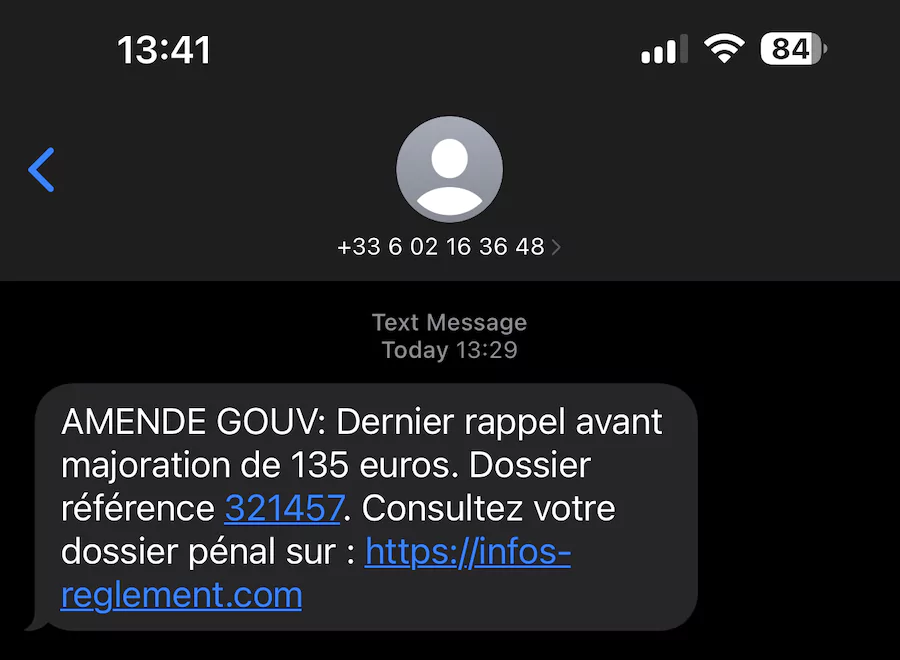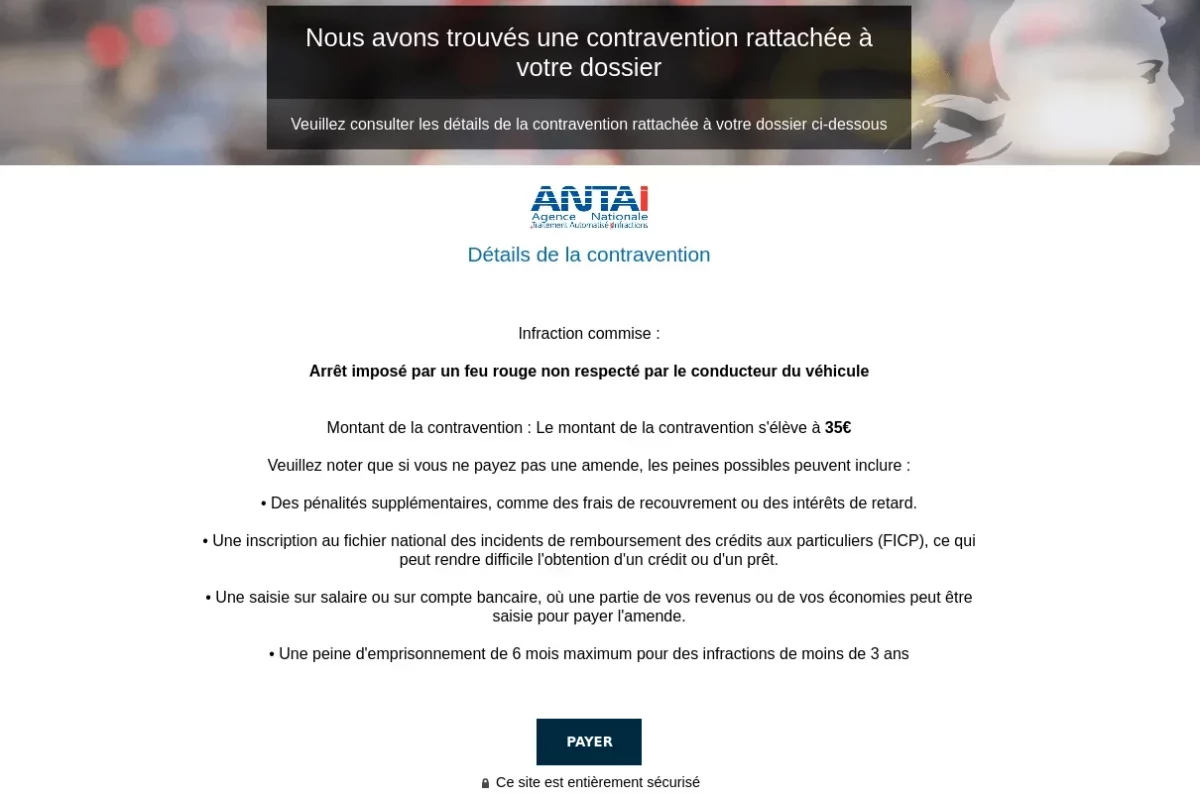A phishing campaign hoping to trick unsuspecting recipients into sharing their personal and bank details is going around France. Here’s what you need to look out for.
Have you received a text message or email recently regarding a fine or speeding ticket that you didn’t know about? Did it ask you to click on a link that then asks for personal information and bank details? If so, it might be wise to contact the fraud desk at your bank as the chances are that you’ve been targeted by a scam campaign posing as an official branch of the French state.
Cybermalveillance.gouv.fr, an online cybercrime portal managed by the French government, has published an information sheet on a current scam that is showing up in the message boxes and inboxes around France.
What to look out for
Acting in the names of both the Agence Nationale de Traitement Automatisé des Infractions (ANTAI) and the government itself, the scam message reads something along the lines of: “INFO ANTAI: You have a fine to pay. In order to avoid any penalty charges, please settle the fine here XXX.” or “AMENDE GOUV: Our agents have found a minor offence attached to your dossier. Please consult the details here XXX.”
Other similar messages include a file number and the amount to be paid, while some feature a section asking the recipient to get in touch for “further information”, adding to the seemingly legitimate nature of the item. All include a dubious link that can easily be mistaken for the real deal.
If these links are clicked on, the recipient will be taken to another official-looking page where they will be asked to fill in specific personal details as well as receive a warning about the threat of so-called penalties in the event of non-payment. From there, a confirmation of the identification of the dossier may appear, before the final step of entering bank and card details.

What to do if you think you’ve been targeted or scammed
The Cybermalveillance website has a full section on how to act if you think you have fallen into the trap of the scammers.
The first note is that there is only one single website run by the French state that deals with fines and that is: amendes.gouv.fr. Any notification from a different source should be questioned.
If you believe you have received a fraudulent message or email, do not reply to it directly. You should instead signal its existence via 33 700 for SMS messages or move it into your spam box. It is also recommended that you notify internet-signalement.gouv.fr.
If you notice irregular payments from your bank account, immediately contact your bank. The bank’s fraud services may ask to see a copy of the scam message. You should also contact the Perceval platform run by the Interior Ministry, which centralises information on ongoing scams of this type.
You can also contact the France Victimes association on 116 006 for further advice.
Make sure you’re never left out of the conversation.
Sign up for the Monaco Life newsletter, and follow us on Facebook, Twitter, Instagram and LinkedIn.
Image via Cybermalveillance.gouv.fr
